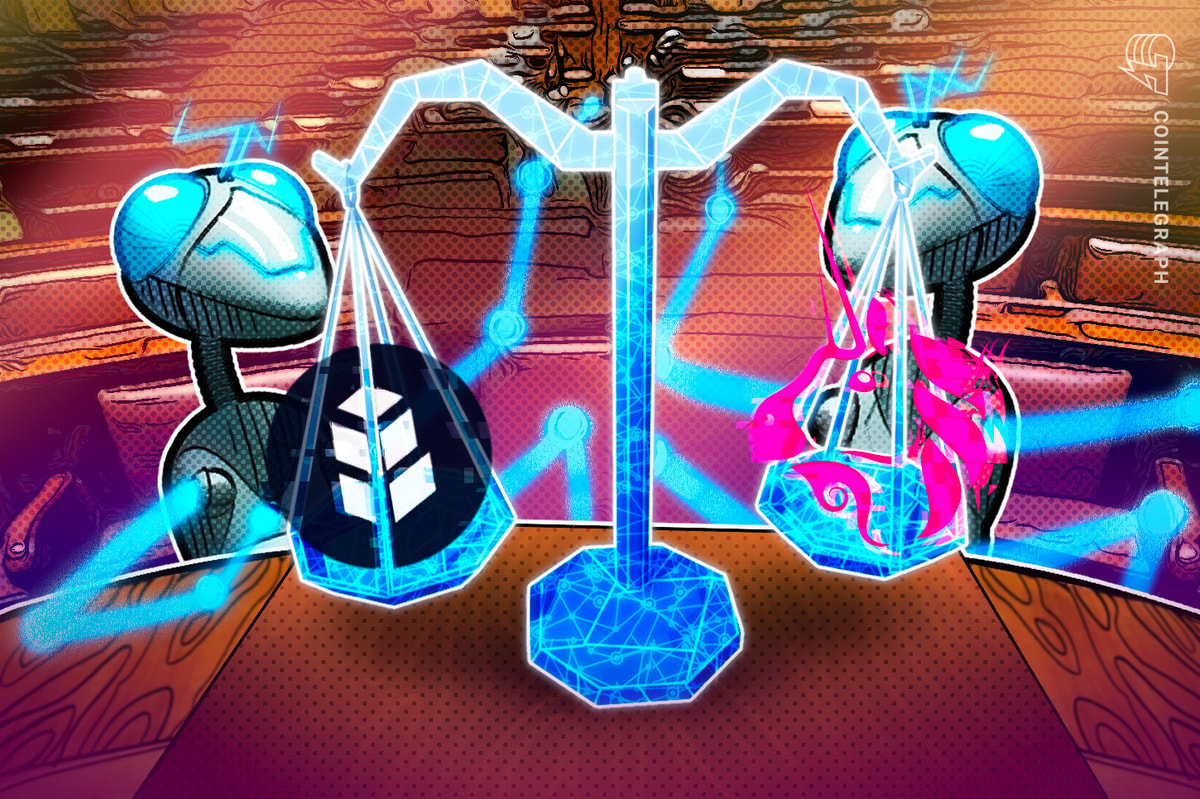
We all remember what the 2008 subprime mortgage debacle was like. The situation was so destructive and almost brought down the global banking system that words like subprime mortgages, credit default swaps and collateralized debt obligations — which are normally part of investment banker’s jargon — became part of the general vocabulary.
Because of this in 2009, Satoshi Nakamoto released the very first Bitcoin genesis block, or block zero. Embedded in it was a quote, “The Times 03/Jan/2009 Chancellor on brink of second bailout for banks.” This was roughly at the same time protests to “Occupy Wall Street” displayed the public’s anger against the excesses of traditional finance.
If you think about it, with all the problems of the banking industry, the crypto industry could have taken advantage of the animosity against traditional finance to increase public adoption. Unfortunately, crypto is a tribal world. Often we are treated to the spectacle of competing chains badmouthing each other, of well-publicized blockchain projects like Terra Luna, Celsius and FTX/Alameda blowing up spectacularly with many investors wounded.
Yet with all the mudslinging going around the various crypto tribes, try asking people on the street what a blockchain or crypto is. Admittedly, there are already many who are trading it, but even those who buy it on a regular basis might not really conceptually grasp what a blockchain is, which is a replicated data structure that keeps a history of all transaction records.
Instead, what the public thinks of it is based on fraudsters, scammers, “pet rock” labels, soundbites from the likes of Warren Buffett and so on. Clearly, much needs to be done to clean up its act. Simple explanations, and not buzzwords like on-chain metrics, FUD, FOMO, WAGMI, HODL, etc., would really help.
Join the community where you can transform the future. Cointelegraph Innovation Circle brings blockchain technology leaders together to connect, collaborate and publish. Apply today
Contrary to what some may think, regulation will be good for the industry. Along with AI, electric vehicles, nuclear fusion and other new technologies, crypto and blockchain should be viewed positively by the public for their benefits. Some of these benefits include cheaper remittances, secure records, cheaper cost of transactions, banking for the unbanked and so forth. Instead, it is getting the cold shoulder at the moment.
Crypto/blockchain needs to break away from its early anti-establishment punk days and association with seedy sites like The Silk Road. Instead, it needs to be associated with the needs of the common man, but also with hedge funds like Blackrock, sovereign wealth funds and exchange-traded funds, to smoothen out the variabilities from retail investors.
Sometimes we are so engrossed in internecine warfare among the chains and tokens that we fail to realize the regular folks who have no idea what we are talking about. Remember: traditional finance could lose trillions if crypto and blockchains take over their business the way they normally do it.
Any win of one chain against other chains is just a Pyrrhic victory for the entire industry if everyone sinks together. Traditional finance and the media are just laughing and watching us burn our own ships.
Zain Jaffer is the CEO of Zain Ventures focused on investments in Web3 and real estate.
This article was published through Cointelegraph Innovation Circle, a vetted organization of senior executives and experts in the blockchain technology industry who are building the future through the power of connections, collaboration and thought leadership. Opinions expressed do not necessarily reflect those of Cointelegraph.
Learn more about Cointelegraph Innovation Circle and see if you qualify to join
Read More: cointelegraph.com









 Bitcoin
Bitcoin  Ethereum
Ethereum  Tether
Tether  XRP
XRP  Solana
Solana  USDC
USDC  Dogecoin
Dogecoin  Cardano
Cardano  TRON
TRON  Lido Staked Ether
Lido Staked Ether  Wrapped Bitcoin
Wrapped Bitcoin  Sui
Sui  Wrapped stETH
Wrapped stETH  Chainlink
Chainlink  Avalanche
Avalanche  Stellar
Stellar  Hyperliquid
Hyperliquid  Shiba Inu
Shiba Inu  Hedera
Hedera  LEO Token
LEO Token  Bitcoin Cash
Bitcoin Cash  Toncoin
Toncoin  Litecoin
Litecoin  Polkadot
Polkadot  WETH
WETH  USDS
USDS  Monero
Monero  Wrapped eETH
Wrapped eETH  Bitget Token
Bitget Token  Binance Bridged USDT (BNB Smart Chain)
Binance Bridged USDT (BNB Smart Chain)  Pi Network
Pi Network  Pepe
Pepe  Ethena USDe
Ethena USDe  Coinbase Wrapped BTC
Coinbase Wrapped BTC  WhiteBIT Coin
WhiteBIT Coin  Aave
Aave  Uniswap
Uniswap  Bittensor
Bittensor  Dai
Dai  NEAR Protocol
NEAR Protocol  Aptos
Aptos  OKB
OKB  Jito Staked SOL
Jito Staked SOL  Ondo
Ondo  Cronos
Cronos  BlackRock USD Institutional Digital Liquidity Fund
BlackRock USD Institutional Digital Liquidity Fund  Official Trump
Official Trump  Tokenize Xchange
Tokenize Xchange